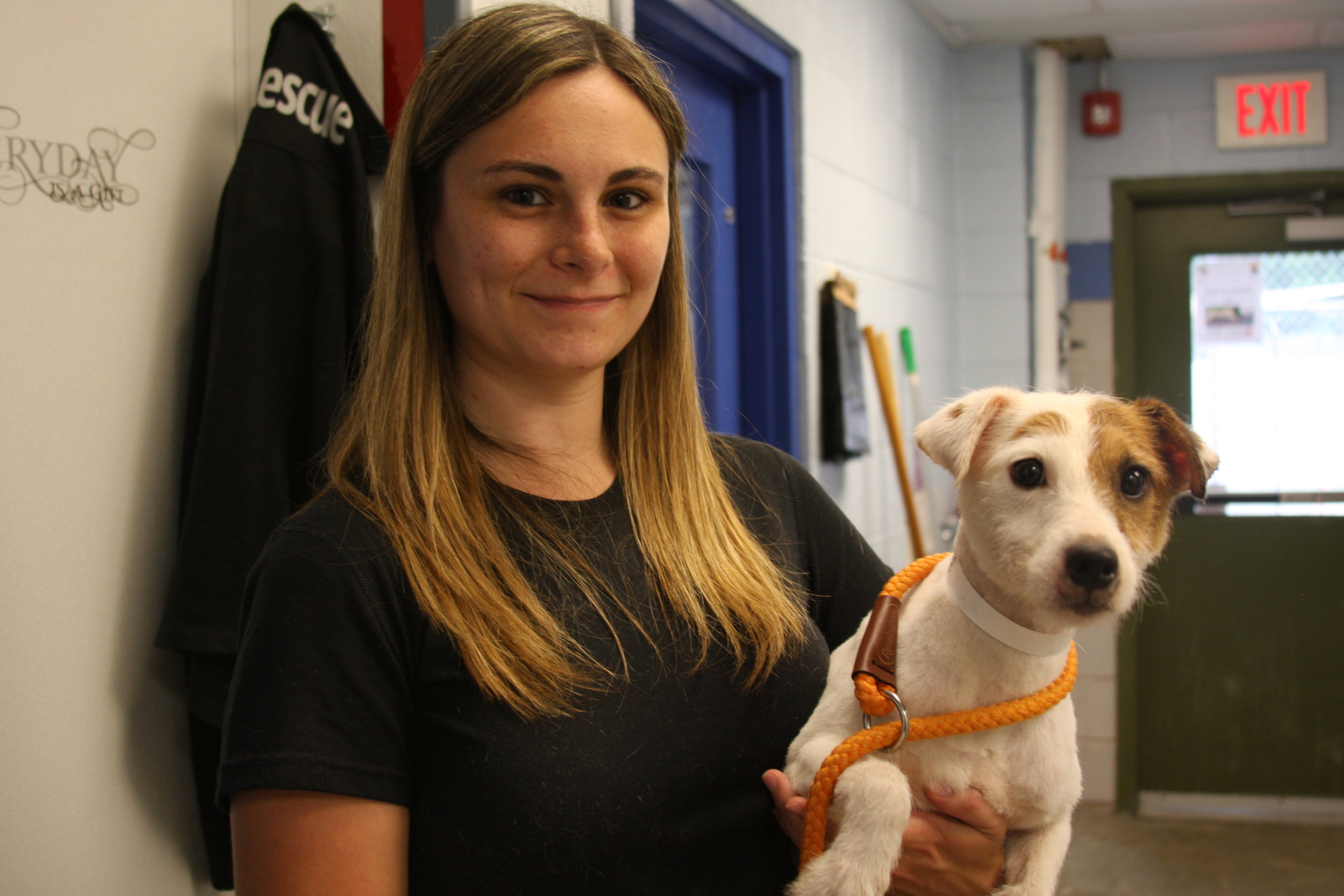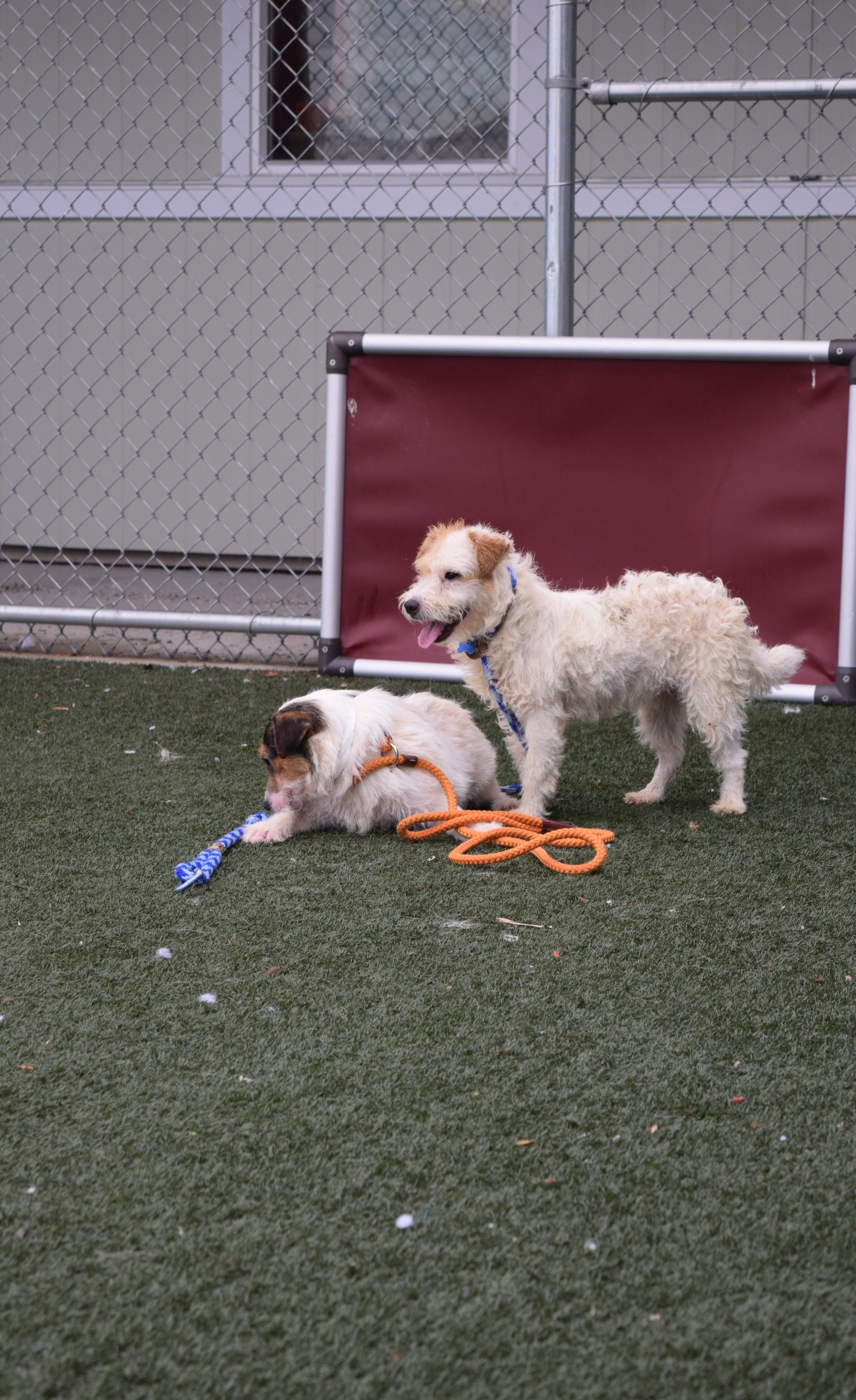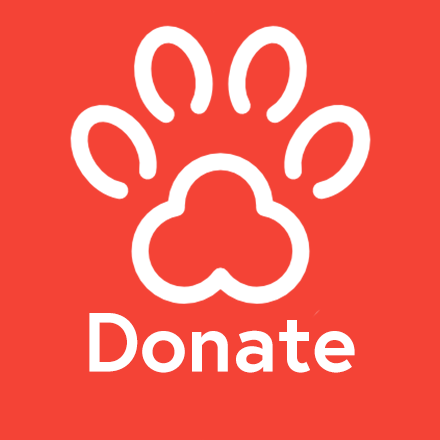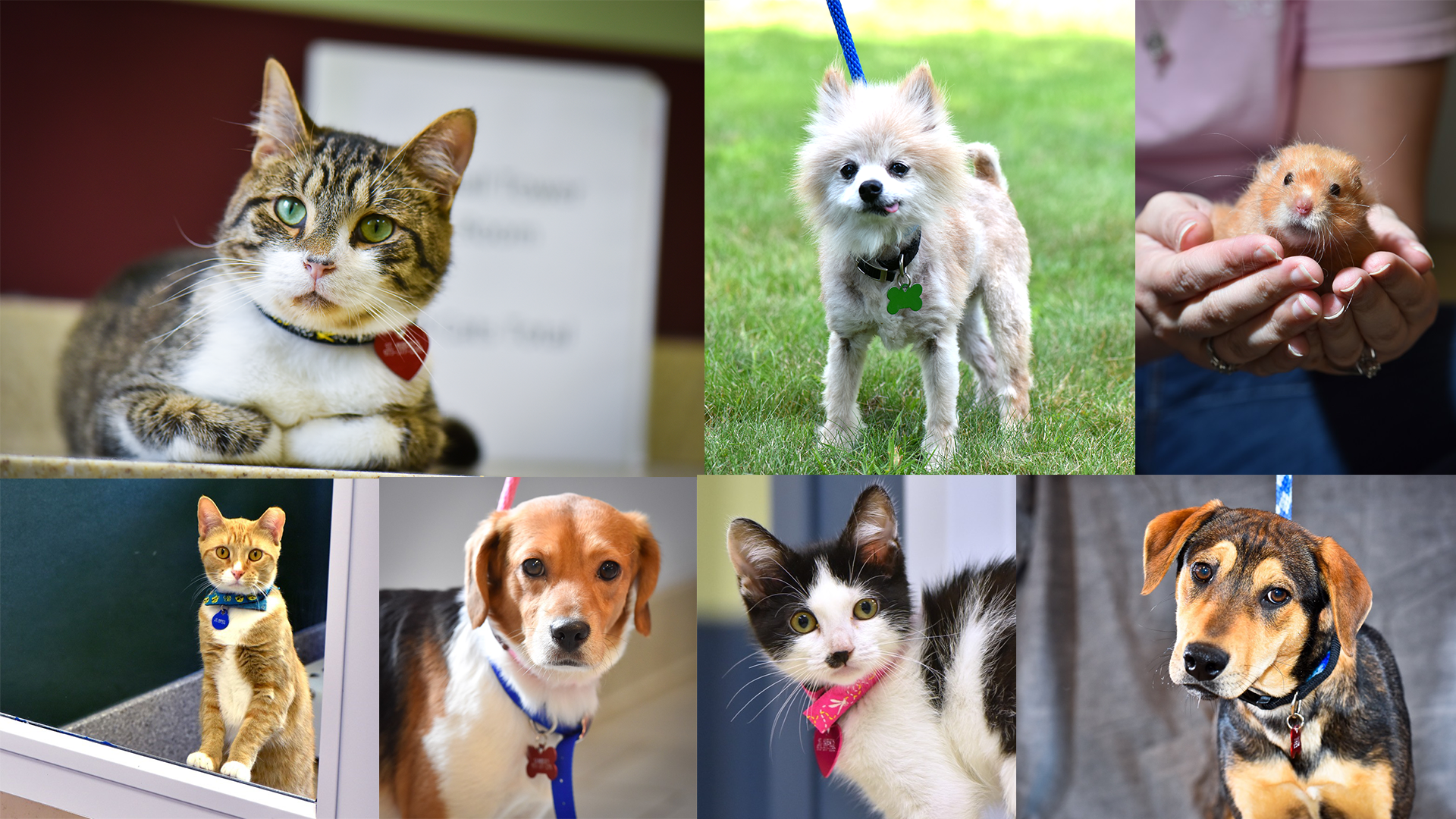
LATEST NEWS
Our Continued Commitment
As we learn more about COVID-19 each day, and as our elected officials continue to issue community directives to best protect people during this pandemic, we are absorbing information, making decisions, and adapting quickly. You would be very proud to see our amazing team rising to the occasion and innovating in countless ways!
Last week, the Mayor of Washington, DC issued an order closing non-essential businesses. HRA and our core activities are considered essential to the running of the nation’s capital. Likewise, in New Jersey, the Governor issued a stay-at-home order for non-essential businesses, but St. Hubert’s Animal Welfare Center and our core activities are considered essential to the health and well-being of the communities we serve.
The animals still need a safe place to be cared for, and our officers will remain on the road. We are working closely with the government officials, and we are well-positioned to learn of any changes in the operations in all our communities.
In response, we’ve made some critical changes to our operations to ensure the safety and well-being of our staff, the animals in our care, and the public:
In Washington, we have moved our adoptable animals into foster homes and launched virtual adoptions. On March 26, our DC shelters closed for adoptions. This change has been wonderful for the animals; instead of waiting in a kennel, they are awaiting adoption in a loving home environment. This also is good for adopters, who are practicing social distancing – the adoptions process can be done from the comfort of their living rooms.
At St. Hubert’s, we successfully launched our new drive-through foster pickup process and established safer ways for adopters to meet the animals. Effective March 25, our New Jersey shelters closed to the public except by appointment from 4-6 p.m. Community members have overwhelmed us with their generous offer to foster our animals in their homes.
Another important change we have made is that we have temporarily suspended spay and neuter surgeries and for the time being we are adopting out intact animals at all our locations. Adopters will receive a waiver so they can return with their animal at a later date for the surgery, and our staff will stay in communication with the adopters so they are informed and encouraged to return as soon as we are able to perform the surgeries. This has been a very difficult decision, and one that our shelter colleagues across the country are also making. The shortage of personal protective equipment (PPE) has put healthcare providers in the human medicine field at great risk. Animal care and control organizations across the country have been asked (and in some situations mandated) to provide these valuable resources to human healthcare facilities, and we want to support the heroic efforts of our human healthcare providers.
Despite the challenges posed by the virus, our field services teams in DC and NJ remain hard at work. Unfortunately, animal cruelty and neglect doesn’t stop during a pandemic, and we won’t stop either. You may have seen the video we shared last week showing the nine dogs we rescued from an apartment in SE DC. Our officers, acting on a tip from a good Samaritan, found the dogs living among their own waste, without access to food or water. We rescued five puppies and four adult dogs. The puppies were in especially bad shape and we made it to them just in time. The good news is, they are now getting the care they need and deserve.
Early last week we received some wonderful news: we are being asked to serve as a recipient and distributor – both in DC and in New Jersey – of major pet food donations from Greater Good. We will distribute this food to families in need in all the communities we serve. We are also coordinating with other shelters and animal welfare organizations in our regions so they can share this food with families in their communities. Our work to keep families together is more essential now than it ever has been.
We are only able to continue this life saving work during such a challenging time because of you. Thank you for your support, and please stay in touch. We would love to see photos of you and your pets! Rest assured that we are in close touch with our governmental and animal welfare partners so we can continue with our essential work in the safest and most effective way possible. Stay safe and be well, and we will keep in touch.
A Message from Lisa LaFontaine on COVID-19
As communities respond to the respiratory disease caused by a new coronavirus (COVID-19), it is important to have plans for your pets as well as yourself. The virus has been identified in the communities we serve and in order to keep families together, we ask that you include your pets in plans you make in response to this emerging situation.
What happens to my pet if I get sick?
Keep your pet home with you, avoid close contact and follow good hygiene.
The CDC recommends the following: “You should restrict contact with pets and other animals while you are sick with COVID-19, just like you would around other people. Although there have not been reports of pets or other animals becoming sick with COVID-19, it is still recommended that people sick with COVID-19 limit contact with animals until more information is known about the virus. When possible, have another member of your household care for your animals while you are sick. If you are sick with COVID-19, avoid contact with your pet, including petting, snuggling, being kissed or licked, and sharing food. If you must care for your pet or be around animals while you are sick, wash your hands before and after you interact with pets and wear a facemask.”
How can I prepare now in case I get sick?
It is important to have a plan in place for all members of your household to respond to any emergency, including illness. In addition to preparations typically recommended for any natural disaster threat, put a plan in place if you become ill and need to be hospitalized.
Please visit our emergency preparedness guide and think through what provisions you would need for you and your pet if you were quarantined for an extended period of time and also if you needed to find temporary alternate housing for your pet should you become unable to care for your pet.
Can I catch the virus from my pet or vice versa?
Both the Centers for Disease Control and Prevention as well as the World Organization for Animal Health have issued advisories saying there is no evidence that companion animals can spread the virus and “there is no justification in taking measures against companion animals which may compromise their welfare.”
This is a rapidly evolving situation and we encourage you to regularly consult the websites for the NJ Health and the CDC. As always, contact your veterinarian and your physician if you suspect that you or your pet has been exposed to the virus.
St. Hubert’s Animal Welfare Center and the Humane Rescue Alliance are taking all the necessary steps to protect the health and well-being of the animals in our care, our staff, and the communities we serve. At this time, our operations will continue as normal. Please consult St. Hubert's website for updates on hours and information.
Over 130 Animals Rescued From Suspected Puppy Mill in New Jersey
St. Hubert’s Animal Welfare Center of Madison, New Jersey assisted authorities and the Plainfield Area Humane Society in the rescue of over 130 dogs and cats from a suspected breeding operation in Scotch Plains on Monday, February 17. Authorities are investigating.
Nearly 40 animals, a mix of dogs and cats, were brought to St. Hubert’s Animal Welfare Center in Madison. Among them are puppies and kittens, and several pregnant animals. All are being continually cared for and evaluated by our staff, and will receive medical treatment if needed. In the coming days, St. Hubert’s will help these pets find the safe, loving homes they deserve.
Puppy mills are inhumane commercial breeding operations that put profit over the health and well-being of animals. According to the Humane Society of the United States - NJ, nearly 140 New Jersey towns have passed anti-puppy mill ordinances to protect consumers and animals.
Many puppies sold in pet stores and online come from puppy mills. That is why St. Hubert’s Animal Welfare Center urges everyone to adopt, don’t shop. To see a list of our pets available for adoption, check our website.
Dogs Rescued From Puerto Rico Arrive at St. Hubert's
St. Hubert’s Animal Welfare Center in Madison, New Jersey is helping find homes for dogs and cats rescued from earthquake-ravaged Puerto Rico. The pets were evacuated from damaged, overcrowded shelters to make room for other animals displaced by the quakes.
On January 19, an emergency transport flight carried 116 shelter animals from Puerto Rico to Florida, Delaware and New Jersey. 140 shelter animals were evacuated on a second flight on February 9. The flights also dropped off disaster relief supplies on the island. We thank Wings of Rescue, GreaterGood.org and The Sato Project for flying these life-saving missions.
Some 60 dogs and cats came to New Jersey on the two transport flights into Morristown Airport. St. Hubert’s and our partner shelters are finding them new loving homes in New Jersey and around the northeast.
Helping animals in need after natural disasters is an important mission for St. Hubert’s. We welcomed animals from Puerto Rico after the devastation of Hurricane Maria, and helped animals in the wake of Hurricanes Harvey and Irma as well.
St. Hubert’s Animal Welfare Center Names Chief Executive
Humane Rescue Alliance president and CEO Lisa LaFontaine today announced that she has named Michelle Thevenin to the position of chief operating officer to lead St. Hubert’s Animal Welfare Center and help bridge between the organization’s operations in New Jersey and Washington, DC. Thevenin will act as the primary executive for St. Hubert’s, overseeing daily operations.
Thevenin is deeply committed to growing St. Hubert’s best-in-class WayStation transport program and building capacity to help more animals and people. She understands the animal populations and differing needs of shelters in the north and south, having run both a well-resourced destination shelter and an overwhelmed source shelter (the Monadnock Humane Society in New Hampshire and Humane Society of Greater Savannah in Georgia, respectively). She is committed to growing the WayStation and building capacity to help more animals and people.
“Michelle Thevenin is deeply passionate about our mission and has a history of building organizations by inspiring her colleagues,” said LaFontaine. “I look forward to a productive 2020 as we finalize the post-merger integration, and a bright, impactful, and powerful future for the unified organization with Michelle on our team.”
“I’m delighted to join such a dedicated team,” said Thevenin. “I’m looking forward to being part of the next chapter in our long history of fostering a compassionate community.”
Michelle has relocated to Morristown, New Jersey, with her animals – three rescue dogs and a 17-year-old cat. She enjoys hiking with her dogs and is looking forward to exploring the green spaces in New Jersey.
St. Hubert's Kitten Nursery Highlighted on NJ.com
Take a heartwarming behind the scenes look at the lifesaving work happening 'round the clock inside our Kitten Nursery.
Story by Lori M. Nichols | NJ Advance Media for NJ.com
Credit: (Lori M. Nichols | NJ Advance Media for NJ.com)
Tucked away in the back corner of St. Hubert's Animal Welfare Center is a small room in which miracles happen every week, if not on a daily basis. The gentle hum of nebulizers and incubators can be heard alongside calming music in the otherwise quiet room, until a chorus of squeaky meows takes over at each feeding time.
Welcome to the Kitten Nursery, otherwise known as the neonatal intensive care unit, or NICU.
Pictured at left, Lucas was non-responsive on intake at the Kitten Nursery at St. Hubert's Animal Welfare Center in Madison. Pictured at right, Lucas after being stabilized on day 1.
Lucas arrived at the Kitten Nursery unresponsive, covered in maggots and totally emaciated. "It was crazy how skinny he was," said nursery manager Samantha Friedman, who has been a veterinary technician for approximately 18 years.
He was found lying on the side of a driveway, alone. His eyes were infected and scarred from being eaten by maggots.
Following three weeks of intensive care, his infections are gone. He still spends his days in an incubator, and goes home with Friedman at night because he's still being bottle-fed and needs to eat every four hours.
"Now he's a thriving, robust fatty boy," said Friedman. "I already have several people interested in (adopting) him, but he has another month to go."
'Fight for the little guys'
The Kitten Nursery opened in April, three years after the idea was born. Friedman had gotten in trouble for parking in the fire zone because she was bringing 10 carriers of sick or neonatal kittens to her home at night and bringing them back each morning for her next shift.
"We can't rely on me and two other vet techs to shlep them home and stay up all night," she said, describing how the idea came about. "We're St. Hubert's, let's have a nursery."
Friedman spoke with former president Heather Cammisa, and together with other staff members and volunteers, got the ball of yarn rolling to "fight for the little guys," the motto Friedman uses for the nursery.
Fudge is taken out of the incubator for a bottle feeding by Sam Friedman, Monday, Sept. 30, 2019. (Lori M. Nichols | NJ Advance Media for NJ.com)
The kittens here need around-the-clock neonatal care, which includes multiple feedings each day and medications to treat illnesses such as upper respiratory infections and anemia.
"The mortality rate of kittens that are too young to be adopted in shelters is very high," said Friedman. "Most shelters don't have the resources or time to put into it, so a lot of these kittens don't make it."
Now that St. Hubert's has this facility, they are able to pull kittens from partner shelters and provide the care they would not otherwise receive. South Jersey can get very overwhelmed with kittens, said Friedman, and there are currently two kittens in the nursery from South Jersey Regional Animal Shelter in Vineland.
Sam Friedman, a veterinary technician and manager of the Kitten Nursery at St. Hubert's Animal Welfare Center in Madison, feeds the kittens in the nursery, Monday, Sept. 30, 2019. (Lori M. Nichols | NJ Advance Media for NJ.com)
In the six months since the Kitten Nursery has been open, 275 underage and critical kittens have come through, with a 90 to 95 percent success rate.
There are three incubators and 11 cages in the nursery, although at times two of the cages may be joined together to make a larger space for a feral cat and her kittens. An incubator is used to maintain a kitten's body temperature, which a neonatal or sick kitten is unable to do on its own. These specialized incubators, which cost approximately $800 each, also have adjustable humidity levels, which helps them breathe, and built-in nebulizers to pump in much needed medication.
"The whole thing is filled with steam or their medication, they're breathing it in and they don't even know. It's totally stress-free," said Friedman. "This is the coolest thing ever."
Smokey's story
Veterinary technician Sam Friedman, who manages the Kitten Nursery at St. Hubert's Animal Welfare Center in Madison, cuddles Smokey, Monday, Sept. 30, 2019. (Lori M. Nichols | NJ Advance Media for NJ.com)
It's not just neonatal kittens who are treated in the nursery -- there are some older kittens that need specialized care as well.
Smokey, who is about 3 months old, was brought in by a woman doing TNR.
"He was emaciated, I mean, skin and bones, the worst fleas, his gums were just pale white, he wouldn't eat, he had a severe upper respiratory infection," said Friedman. "He had all the things wrong with him."
The fleas caused anemia so severe that his internal organs have been affected. He has an enlarged spleen and swollen intestines, which in turn has made his belly large.
"He is very slowly but surely making baby steps," she said. "He just needs time."
Feral moms and their kittens
A feral cat rests with her three kittens in the Kitten Nursery, Monday, Sept. 30, 2019. The comfort of being indoors allows her to recuperate and care for her kittens as they grow strong enough to be adopted. (Lori M. Nichols | NJ Advance Media for NJ.com)
The nursery can also accommodate feral cat moms and their kittens by turning two single cages into one double unit. This allows the staff and volunteers to "shush" the momma to one side -- as a stray, they're not usually friendly enough to be handled -- in order to clean the cage and provide necessary care for the kittens.
Once the kittens are old enough to go into foster care, the mom is spayed and usually returned to her community, or if she was found in an unsafe location, they will search for a new home, such as a barn, to place her at.
"It's really interesting to watch these feral moms with their babies," said Friedman. "As much as they don't want to be social with people, given the chance to just be in a relaxing environment where you leave them alone, they are the most terrific mothers."
Dedication
There are times when Friedman stays overnight in the Kitten Nursery when cases come in that are super-critical. While she can take home the stabilized kittens which still require care during the nighttime hours, there are times when kittens are too weak to be moved.
"We work our butts off to save them, and the volunteers are a huge thing," she said. The volunteers help clean the cages, assist with animal care, and anything else that needs to be done.
When the chores of the shift are done -- with as many as 30 to 40 kittens in the nursery at one time, it can seem as if they're never really done -- there is a special time that everyone enjoys: kitten cuddle time. The volunteers and staff sit around in their gowns, and hold the kittens who are not super-critical, giving them love and affection. They also use a toothbrush -- which simulates their mother's tongue -- to pet them, and it helps the kittens relax and de-stress, which helps them heal faster.
"We really dote on these guys, which helps them survive."
Friedman and St. Hubert's is always searching for more volunteers. "I could not do this without them ... They have been angels for me."
Grundgetta, the trash can kitty
Grundgetta is taken out of her cage by Kitten Nursery manager Sam Friedman, Monday, Sept. 30, 2019. Grundgetta was found in the trash with a sibling, who was too weak to survive. (Lori M. Nichols | NJ Advance Media for NJ.com)
Grundgetta and her sibling arrived in the nursery after being found in a garbage can.
"Somebody threw them away," said Friedman.
While her sibling did not survive the ordeal, Grundgetta -- who was named after Oscar the Grouch's girlfriend -- is experiencing her own little miracle. She receives subcutaneous fluids to help with dehydration, and still sometimes needs to be fed with a syringe, but is on her way to having a bright future.
How you can help
Volunteers are always welcomed in the Kitten Nursery, as well as other departments at St. Hubert's Animal Welfare Center. There is always a need for more fosters who can care for kittens as they grow old enough to be spayed or neutered and await adoption. If you don't have time to give, but still want to help, check out the Kitten Nursery's Amazon.com wishlist. You can also donate items at the shelter or make a monetary donation.
The Humane Rescue Alliance and St. Hubert’s Animal Welfare Center Announce Merger
(July 9, 2019) – The Humane Rescue Alliance of Washington, DC, and St. Hubert’s Animal Welfare Center of Madison, New Jersey, announced today that the organizations are merging to create the first regional, community-based, multi-state animal welfare organization in the nation.
The combined group will provide direct rescue and care of animals in need, cruelty investigations and local animal control services, robust regional community support programs that allow pets to stay with their families, and a premier transport program that invests in partner communities to solve pet overpopulation sustainably and nationwide. The merger will leverage and export the strengths of its founding organizations, which rest on the professional competence of their staffs and the depths of their roots in their communities.
Lisa LaFontaine, President and CEO of the Humane Rescue Alliance and a nationally-recognized leader in animal welfare, will lead the combined organization as President and CEO.
“By unifying two industry-leading organizations, we are building an alliance that can tackle the systemic challenges facing animals in our region and beyond, with the goal of saving more lives,” said LaFontaine.
In 2016, LaFontaine oversaw the merger of the Washington Humane Society and Washington Animal Rescue League, resulting in the formation of the Humane Rescue Alliance – the first unified organization in a major urban area to provide all the animal welfare programs and services to the community.
“The merger of WHS and WARL was never a final destination. Rather, it was an expression of the imperative that animal welfare organizations must work more collaboratively, and rather than compete, they should share a sense of responsibility for the overall population of vulnerable animals,” LaFontaine added. “The future of animal welfare is about cooperation, consolidation, a deepening of community support, and the sensible balancing of resources and animal populations between partnering animal welfare groups.”
St. Hubert’s WayStation program has emerged as a best-in-class animal transport program, creating unprecedented collaboration among shelter organizations to address animal population disparities between communities, and to provide a critical lifeline in times of natural and manmade disasters. The combined organization will invest further in the WayStation program and will continue to connect communities that have extra capacity for placing and caring for homeless animals with communities where animal overpopulation remains a significant problem. The WayStation program is a vehicle for animal welfare groups to increase their collective capacity to address the challenges facing people and animals in their respective communities.
According to LaFontaine, “By enriching the organizations on both ends of animal transports, we can weave a safety net for animals in every corner of the country. Today is a happy day for HRA, St. Hubert’s, and our 60 plus partner organizations throughout the nation.”
The merger was initiated by conversations between LaFontaine and Heather Cammisa, the long-time CEO of St. Hubert’s whose vision and dedication enabled the organization to become a regional powerhouse. It has been approved by unanimous votes of both the HRA and St. Hubert’s boards of directors, and the organizations have been working at the leadership level for the past several months to lay the groundwork for a smooth and efficient combination.
For more information, read LaFontaine’s blog here: http://www.humanerescuealliance.org/lisa-blog.
Starting Life Anew
Update: June 27th
Wigglebutt Dog Grooming was on site to assist, making sure each pup was nice and clean.
It’s been over two weeks since the rescue of 188 dogs from a property in Hunterdon County. In this short amount of time we’ve seen so much progress in each of them. So far we’ve adopted out 15 of the Parson Russell Terriers to loving homes and still have 28 of them in our care. Check out the story of Bo, the first dog adopted from the rescue!
After physical and behavioral evaluations on every dog, we were able to select the canines we’ve felt were ready to be transported to other organizations and be placed for adoption. We happily accepted assistance from many wonderful organizations throughout New Jersey and up the East Coast. Below are our partners who welcomed Parson Terriers into their care over the last two weeks:
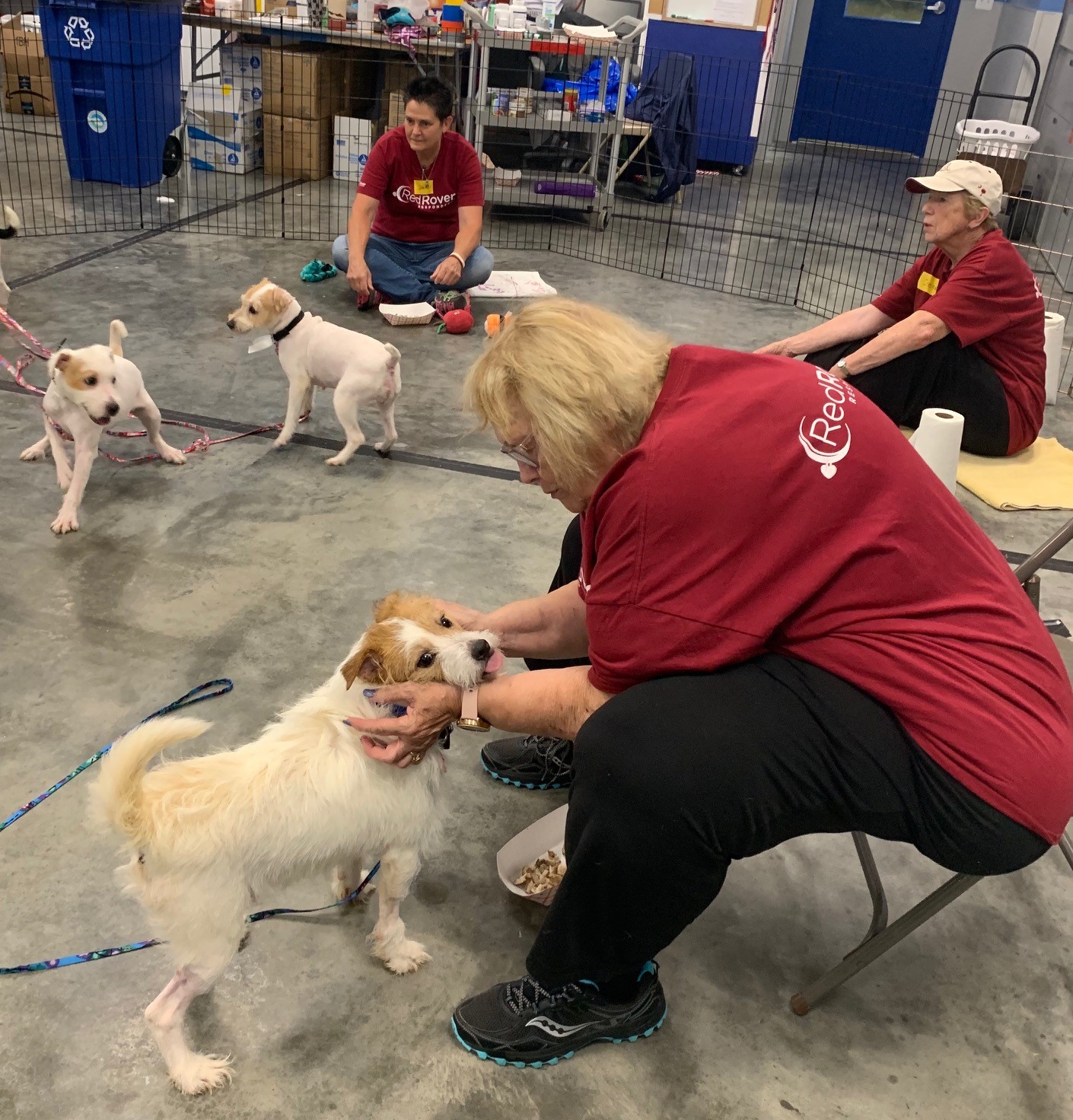
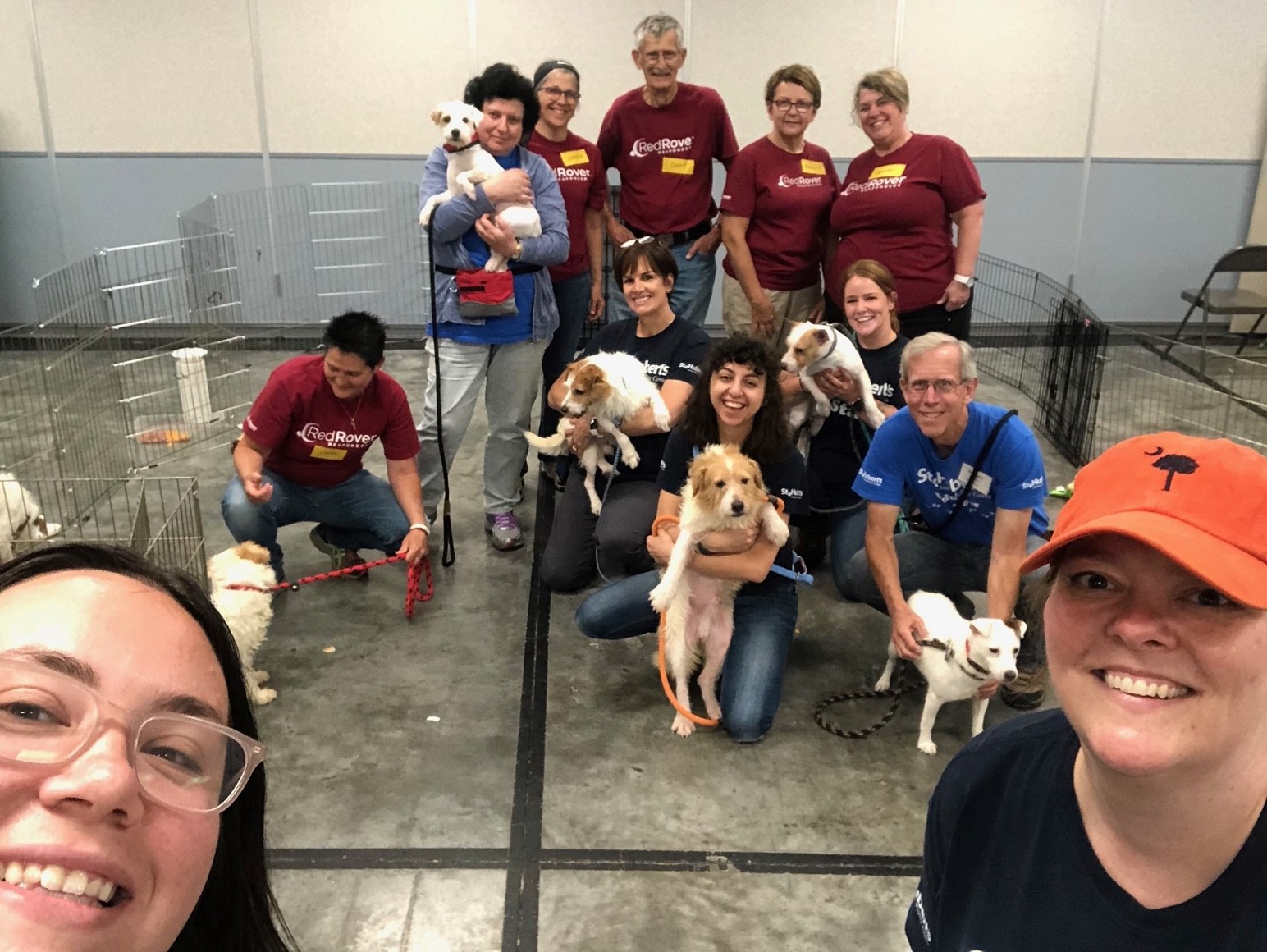

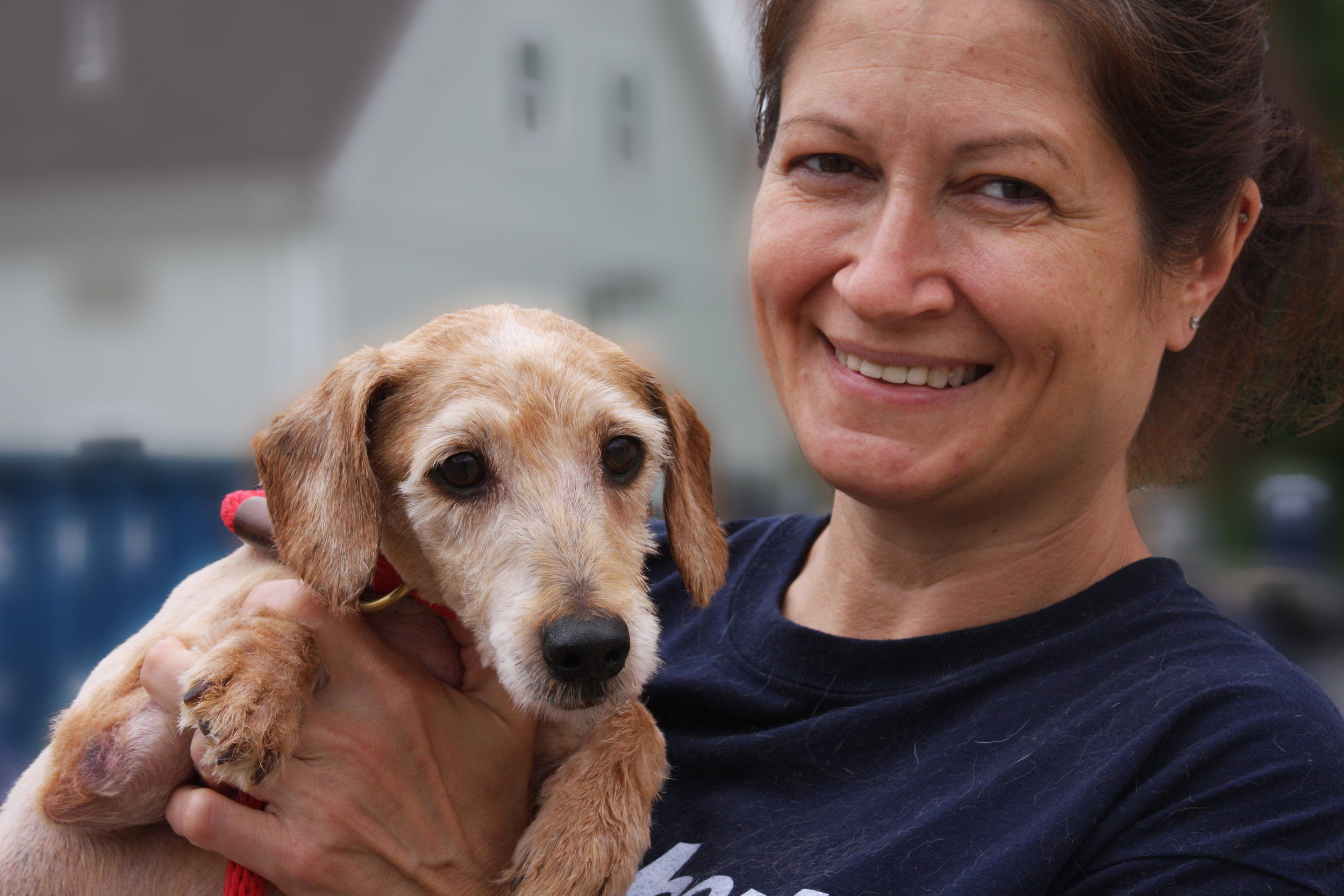
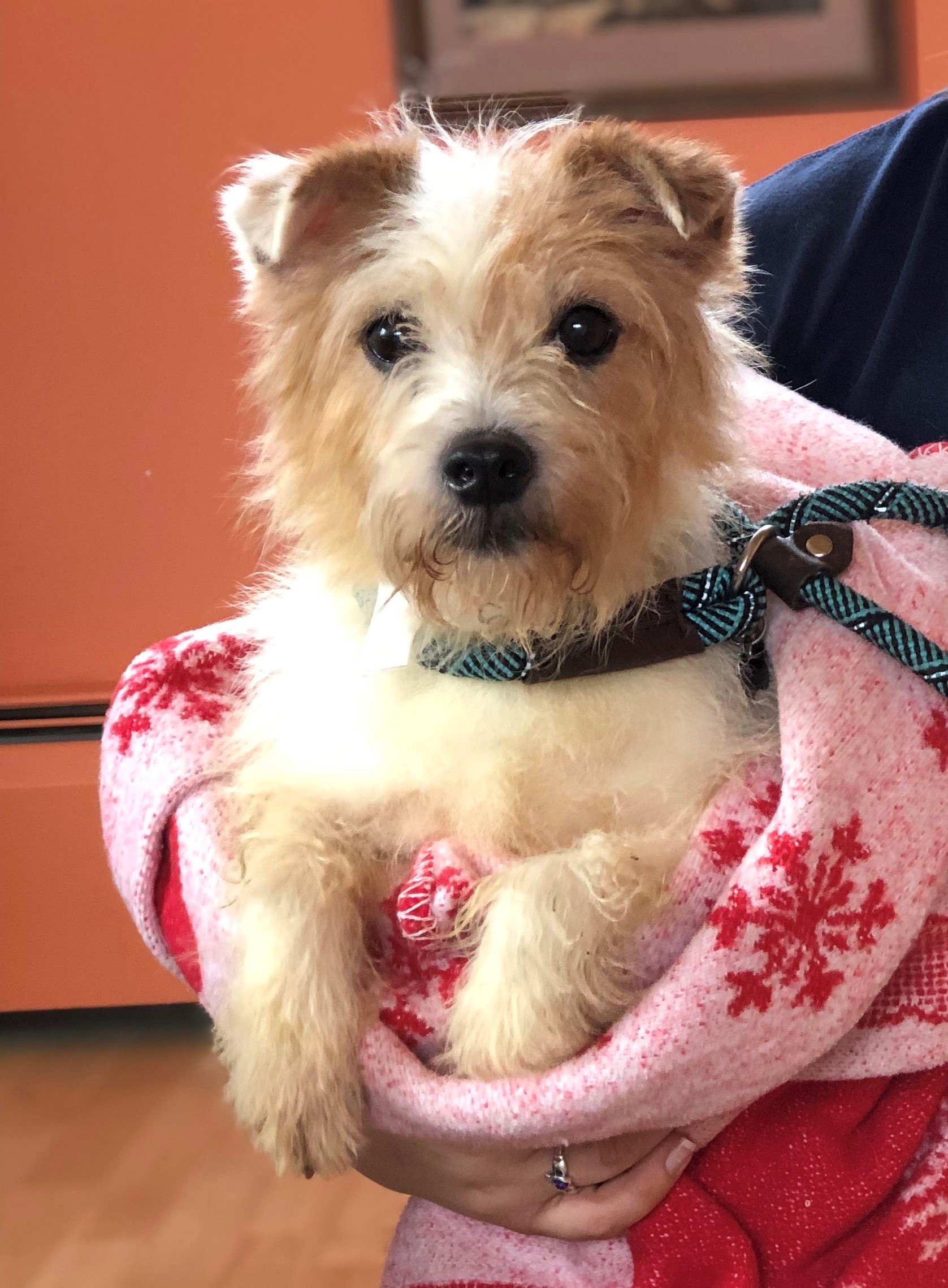
A big thank you to our partners at Massachusetts SPCA (MSPCA) and Dakin Humane Society, Springfield, MA who both sent skilled medical teams down the day the dogs were removed. We also want to thank our friends at RedRover who deployed volunteers to help our staff with cleaning, caring for and socializing the dogs. We also greatly appreciate the Morris County Animal Response Team (MCART) and the Morris County Office of Emergency Management for coming to the rescue with the emergency shelters and generators as well as individual dog housing equipment.
We couldn’t have done this without the help of all these wonderful organizations!
What a Difference a Couple of Days Makes!
Update: June 14th
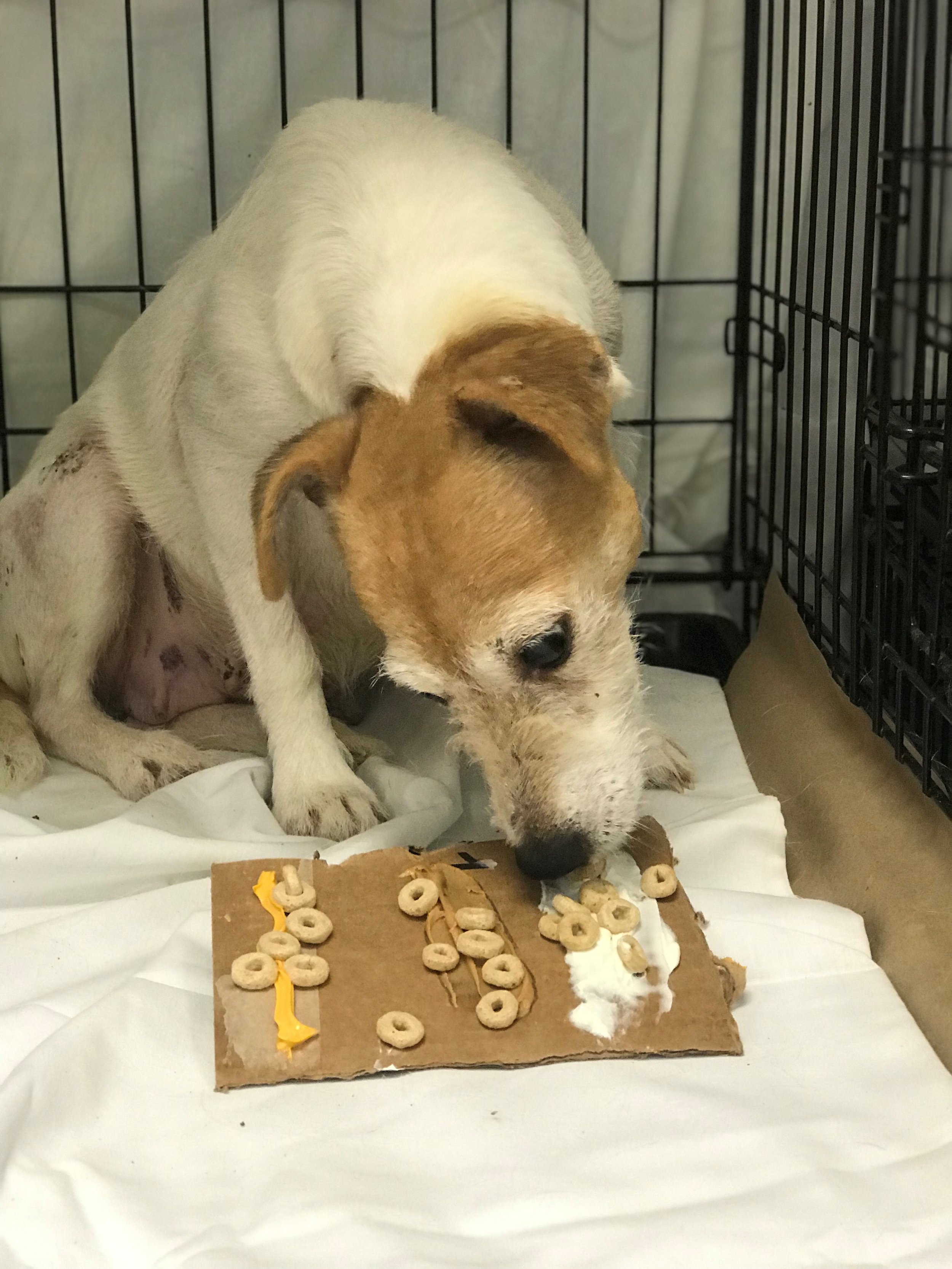
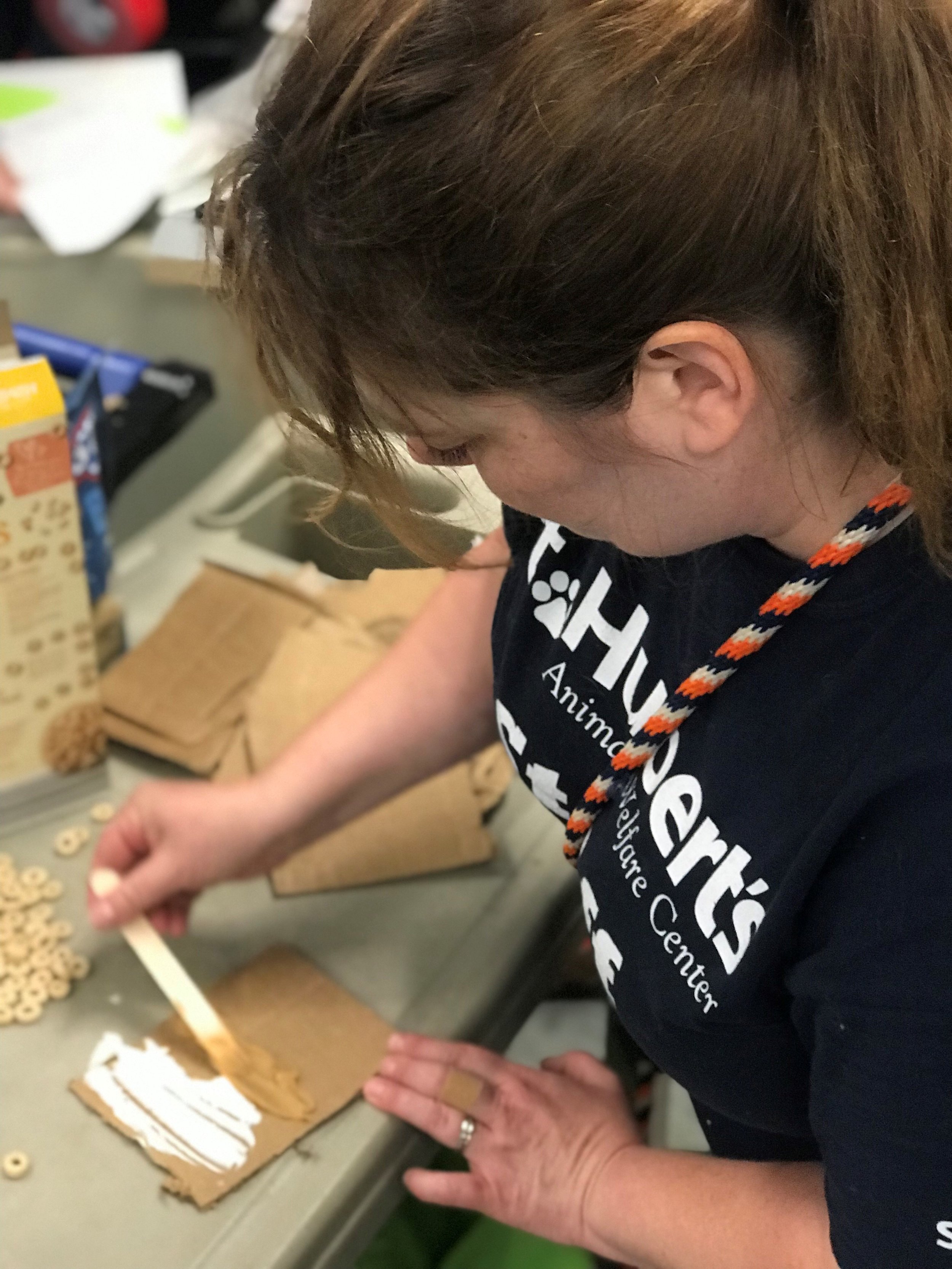
Today, our behavior team started introducing the dogs to a variety of tastes and scents including peanut butter and cream cheese. Each day they make progress and we are so happy to see their personalities shining through. When dogs come from situations like this rescue in Hunterdon County, they’ve often never experienced the simple joys in life. Walking on the grass, playing with toys and indulging in treats are all new to them.
We anticipate some of the dogs being available for adoption tomorrow, June 15th, at our Madison Shelter. Check out our adoption process here https://www.sthuberts.org/adoption-process. We open for adoptions from Noon-6pm.
Take a look at all of our adoptable pets here https://www.sthuberts.org/animals-available-for-adoption
Dogs From Emergency Rescue Settling In
Update: June 13th
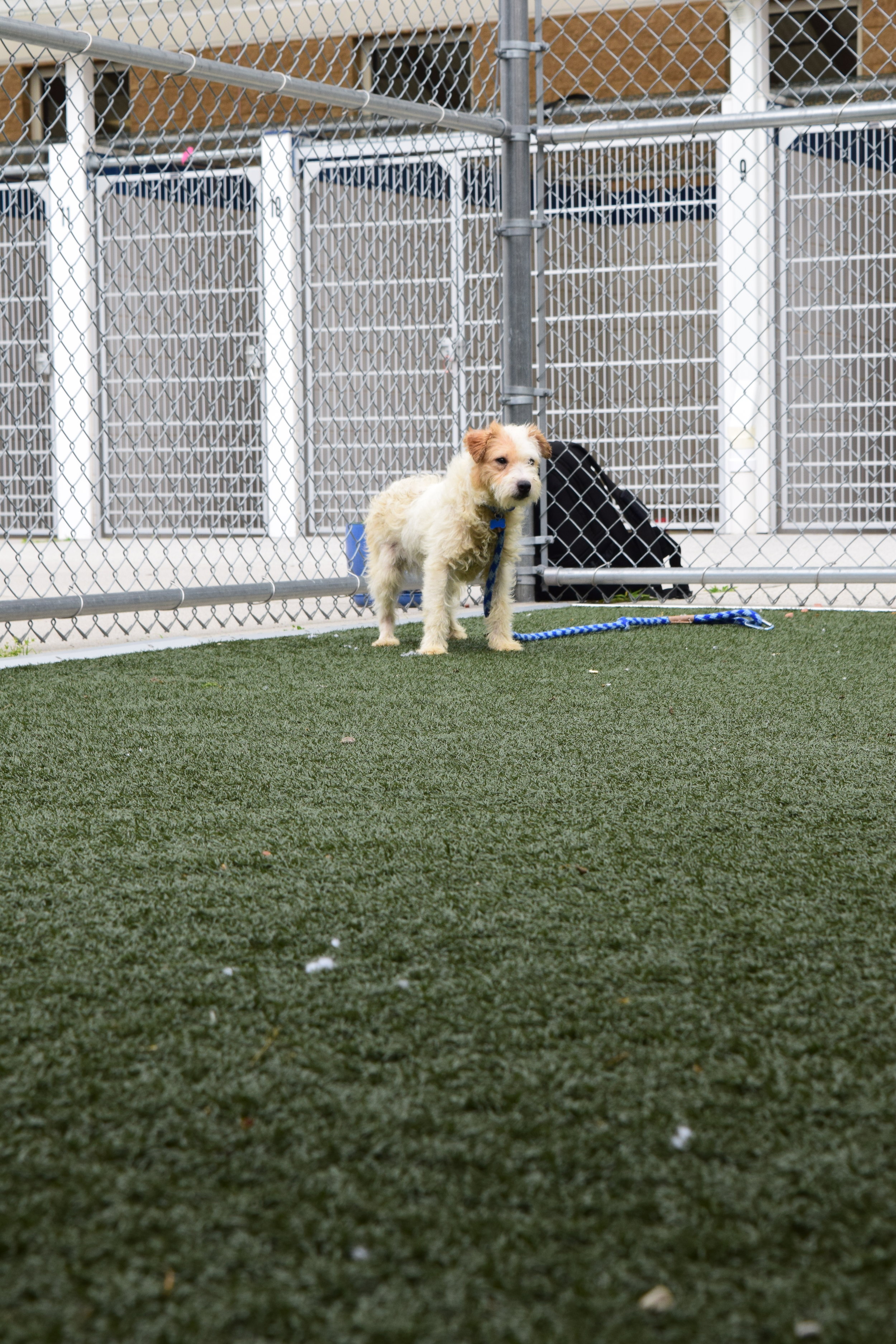
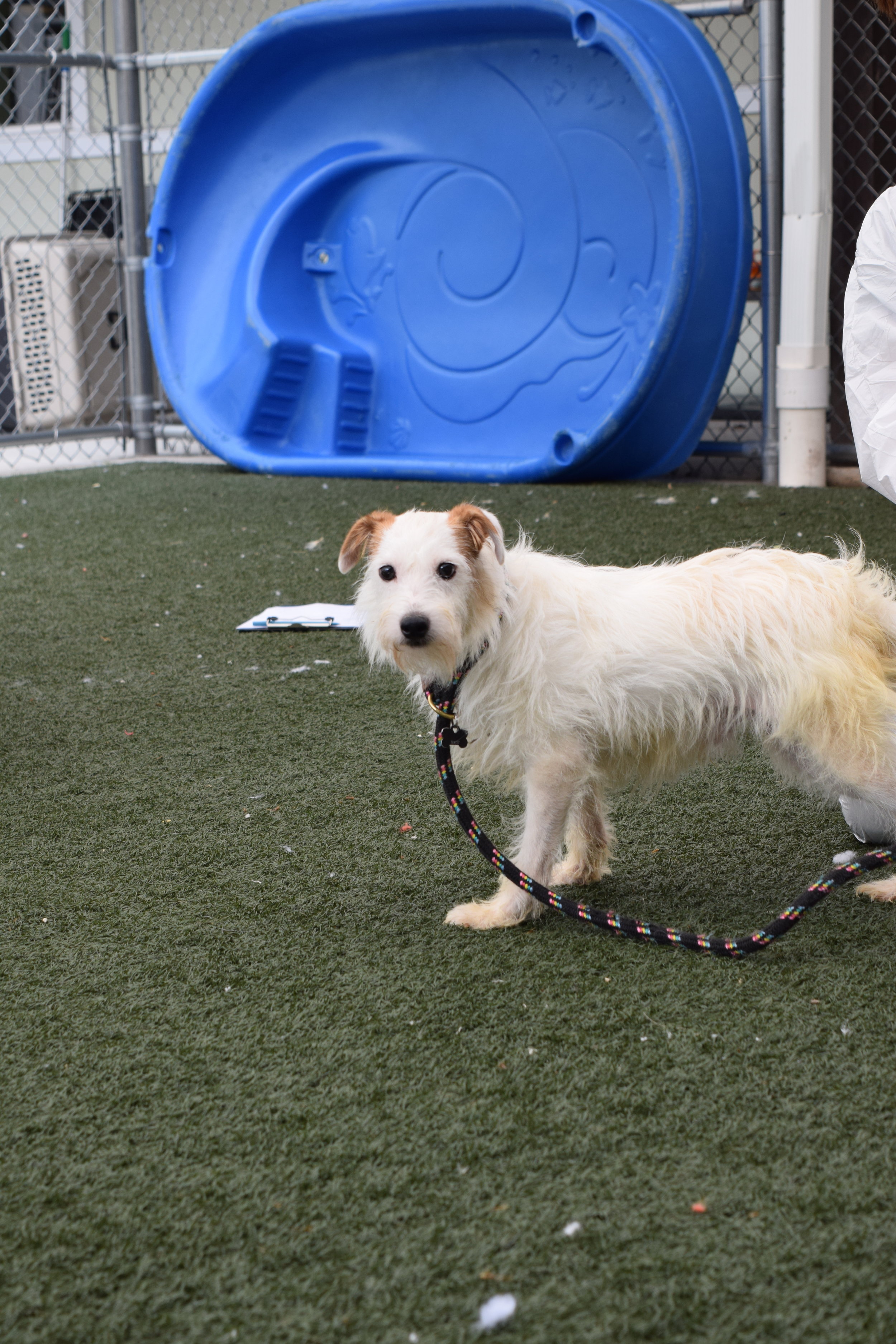
THANK YOU! We are overwhelmed by the response from our community to help us care for the dogs rescued from Hunterdon County this week. Your support has helped us provide nutritious food, comfortable bedding, vaccinations, medications and grooming to each dog in our care. After giving them some time to settle in, our team has begun assessing each dog’s behavioral needs. Many have spent time outside in the fresh air with our staff as we get to know each of their personalities. We are so grateful to have them safe in our arms, and thankful for YOU! As they become available for adoption within the next two weeks, we will post updates.
If you’d like to make a tax deductible contribution to their care, visit our Facebook Fundraiser go.sthuberts.org/emergencydogrescue or on our secure website: sthuberts.org/dogrescue2019. We are also in need of clean blankets and towels, along with canned dog food, treats and toys. Our Amazon Wish List can be found here: https://www.amazon.com/…/…/ls/28KLTV0S98CQY/ref=as_li_ss_tl….
St. Hubert’s Rescues 188 Dogs
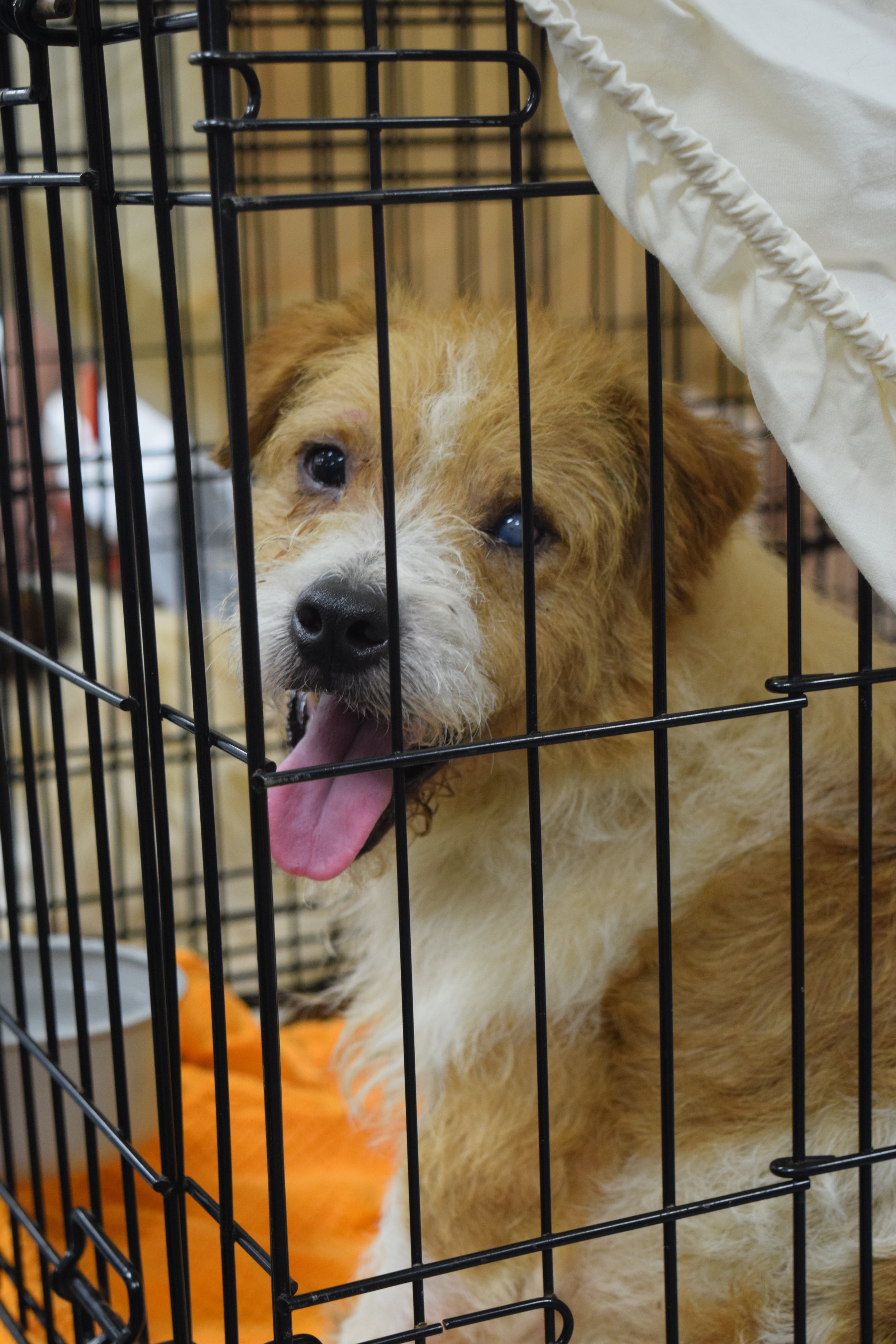
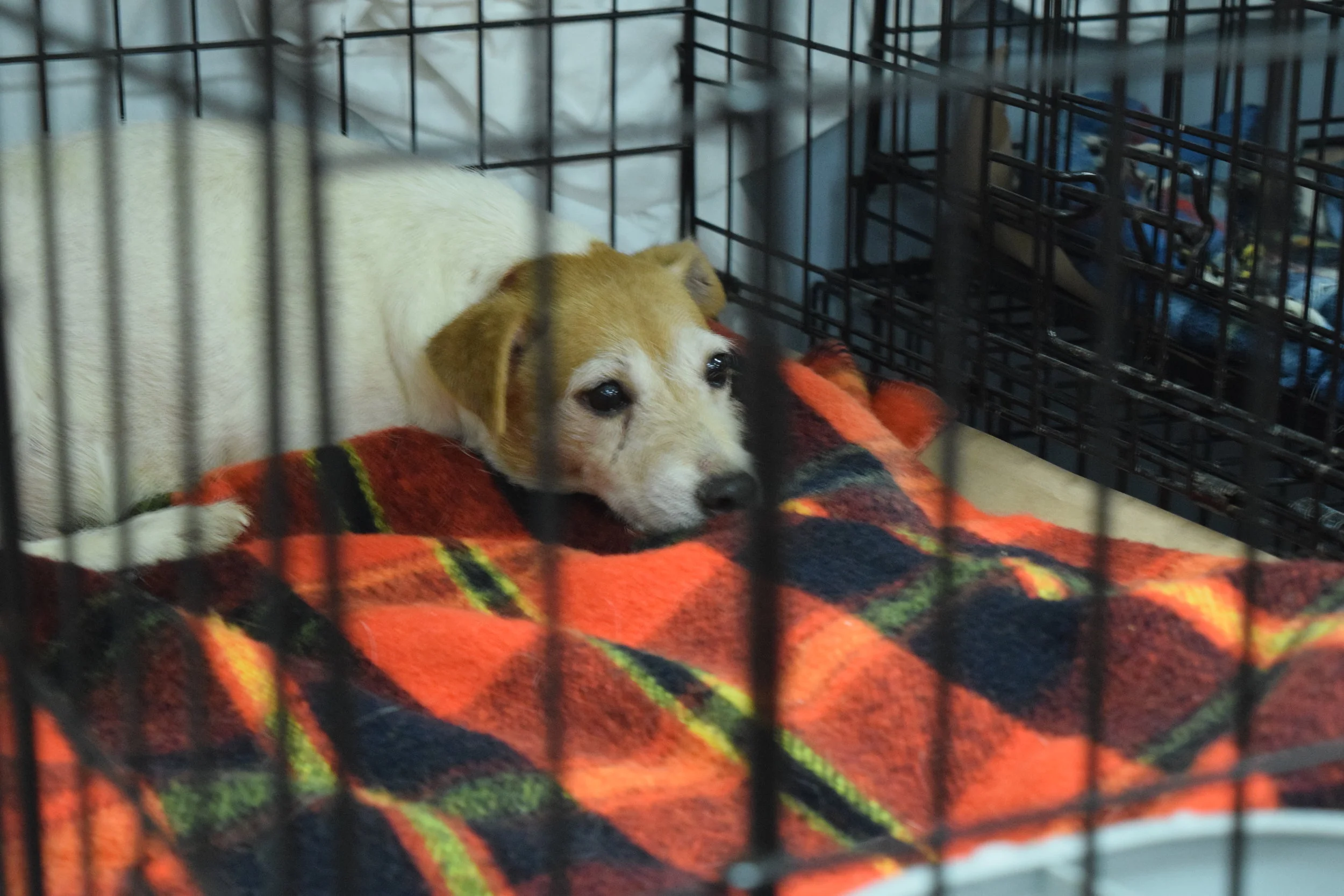
St. Hubert’s was on site today at an undisclosed location effecting the removal of a large number of small dogs from the property following the service of a warrant by a Humane Law Enforcement Officer this morning. St. Hubert’s was asked to provide its expertise in both the removal and the triage, emergency sheltering and care of the dogs which initial estimates indicate may well number more than one hundred. As access to the property has just been gained we do not yet have a better answer as to the total number of animals and their condition. Staff and volunteers have spent the last 72 hours working nonstop to prepare for their arrival. We know that all will be in need of vaccination, deworming and spay/neuter. We anticipate discovering medical issues at a variety of levels. We urgently need your help to provide the basic level of care they need and deserve for these unexpected arrivals. Please consider a donation, which will be matched under our current Matching Gift Challenge. As soon as we have additional information and authorization to release it we will be sure to keep you updated. Many of our followers will remember that this rescue is occurring almost exactly three years after the early June rescue of almost 300 small dogs in Howell Township New Jersey.
St. Hubert’s Extends Emergency Animal Sheltering Service To Newark
Assistance Provided for Six Months Will End April 30
Madison, NJ (April 15, 2019) St. Hubert’s Animal Welfare Center has extended its agreement with the City of Newark to provide emergency sheltering service for lost and stray animals rescued by the City’s Animal Control through April 30, 2019, after which The City will use alternate housing for its animals. St. Hubert’s responded to a crisis situation in Newark in early November and agreed to provide services through December 31, 2018. The Center has twice extended that deadline to provide city officials with additional time to identify intermediate and long-term permanent arrangements for the shelter and care of its homeless animal population.
“St. Hubert’s cares deeply for the animals and residents of Newark and is pleased that we’ve been able to extend our assistance from 60 days to 6 months, though we have explained to The City during our ongoing meetings that we cannot continue to absorb the financial hardship it places on our organization, ” said St. Hubert’s Interim President Erika Mathews. It is not sustainable for St. Hubert’s to continue to provide service from our shelter facilities. The homeless animals in Newark will be best served by a centrally located facility that can provide ample resources and care.”
St. Hubert’s is committed to continuing its outreach work in the Newark community, regularly supporting Newark pet parents in need through its pet food/supplies bank services, free vaccination clinics and spay/neuter assistance.
Mathews stated that since November 2018 through mid-April, St. Hubert’s has provided intake and care for 1,016 Newark animals, many of whom needed extensive emergency or routine medical care. During free clinics offered in Newark 447 pets received their annual vaccinations/microchips and more than 375 dogs and cats have been provided with spay/neuter surgery through St. Hubert’s at no cost to residents or The City.
“The experience and insight St. Hubert’s has gained in serving Newark these last 173 days will enable us to support The City with input and guidance as it develops its best practice long-term program to meet the community’s needs,” said Mathews. “We would like to be a part of that permanent program if a financially sustainable, comprehensive and multi-faceted solution can be reached with The City.”
Any questions regarding Newark’s animal sheltering plans after April 30 should be directed to City officials.
# # # # #
ABOUT ST. HUBERT'S ANIMAL WELFARE CENTER
Founded in 1939, St. Hubert’s Animal Welfare Center is a nonprofit organization dedicated to the humane treatment of animals. Its services to the community include pet adoption and animal rescue, humane education, a pet helpline, pet training, professional educationand pet loss support. St. Hubert’s Animal Welfare Center has shelters in Madison, North Branch, and Ledgewood, NJ and its dog training and behavior school in Madison. For more information about St. Hubert’s, visit www.sthuberts.org or contact the Madison shelter at (973) 377-2295, the North Branch shelter at (908) 526-3330, the Ledgewood shelter at (973) 347-5469.








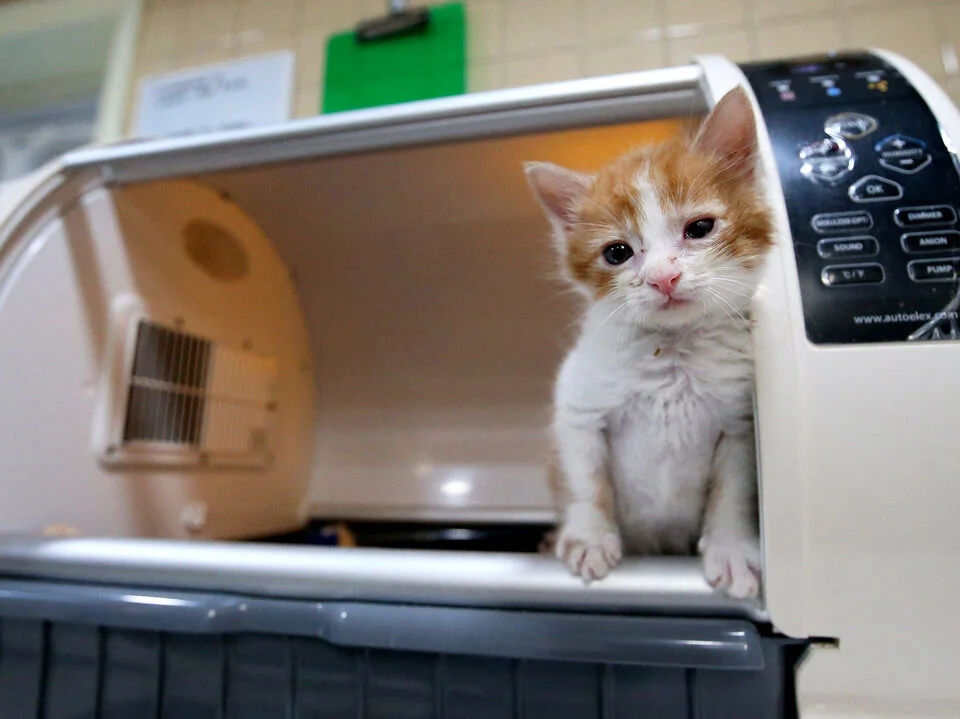
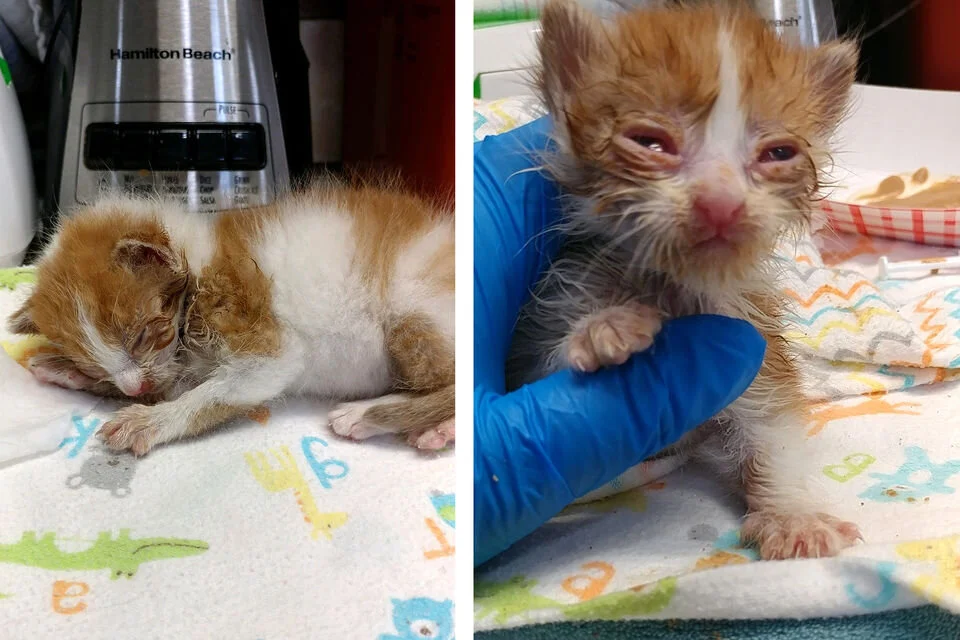

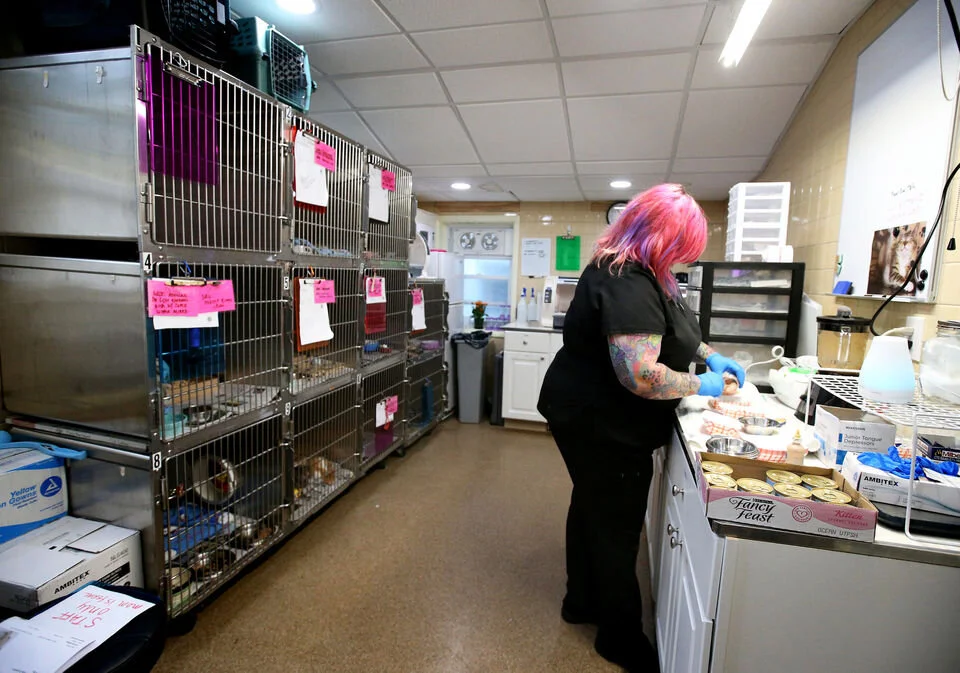
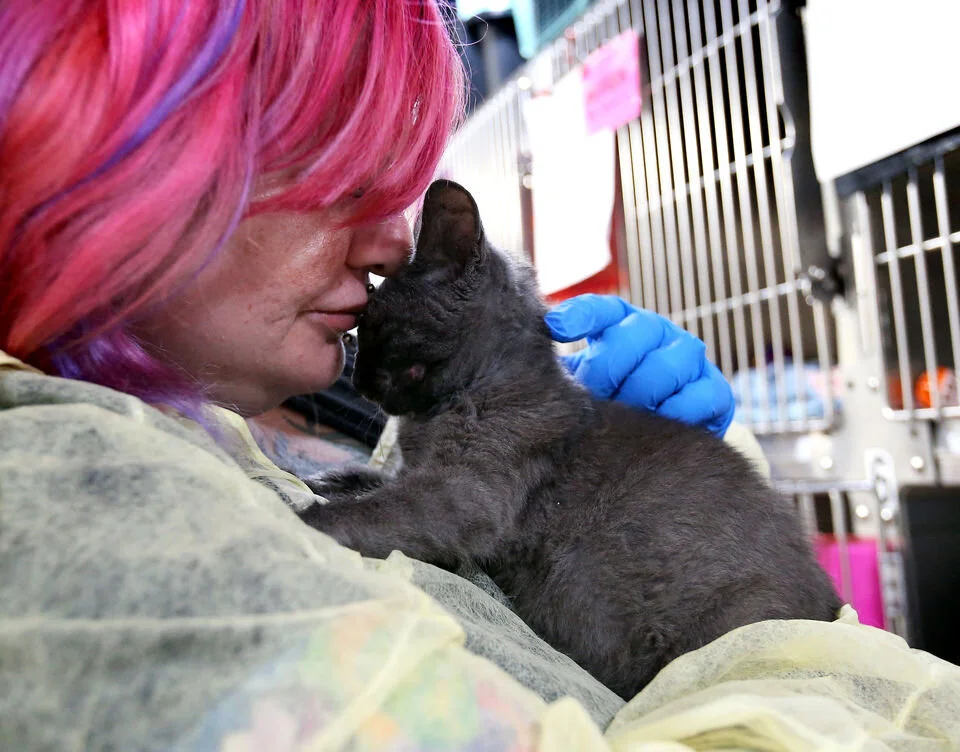
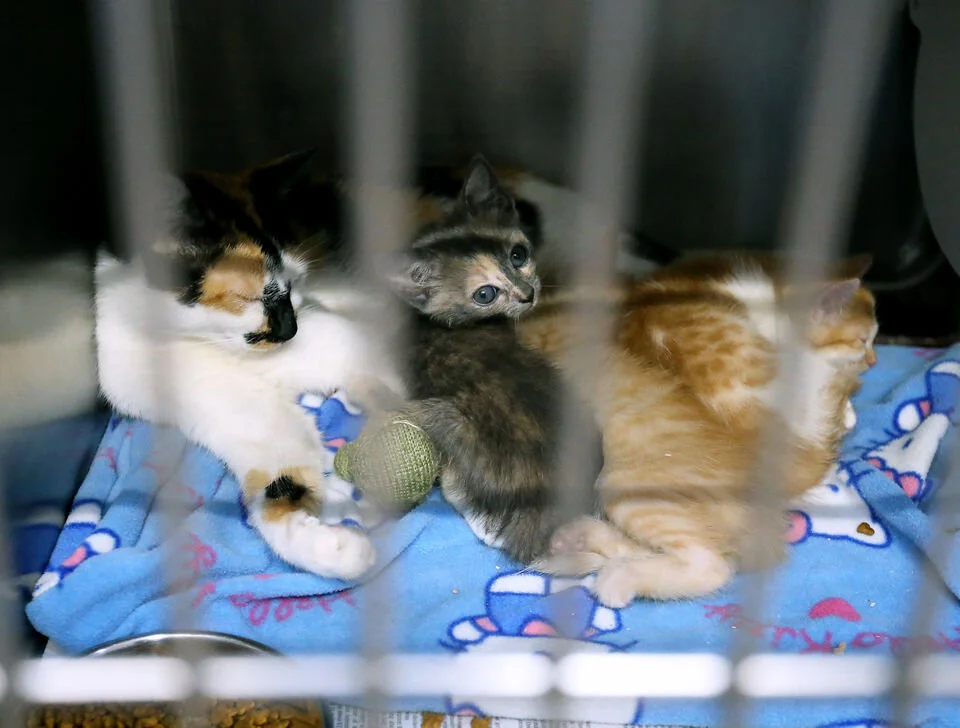
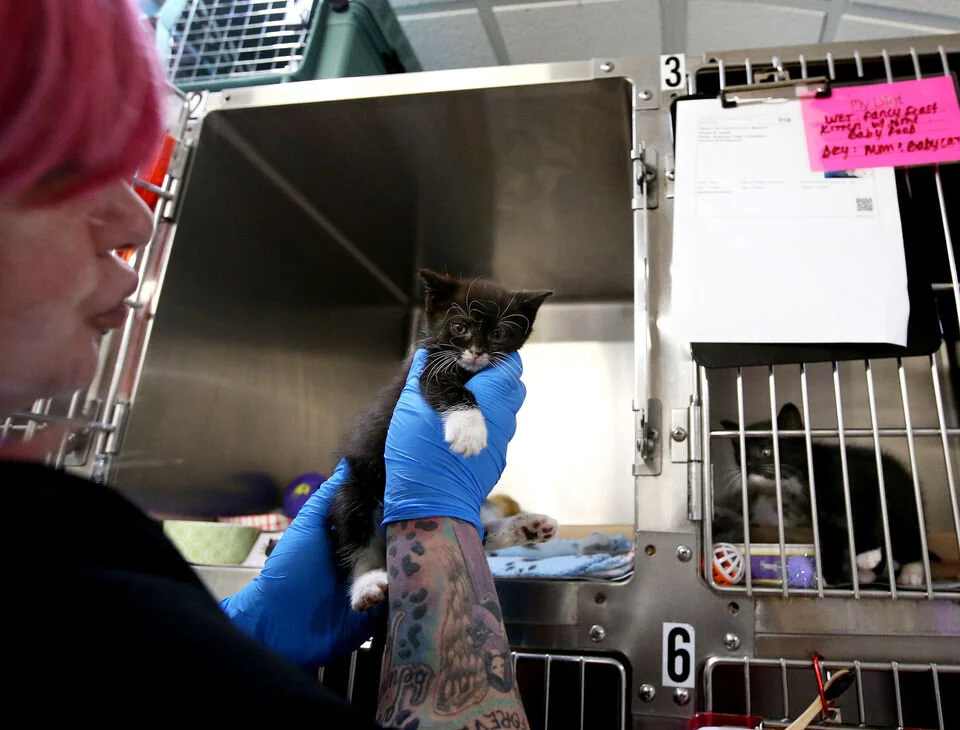
![HRA_STH_graphic_draft_v1[8][3].png](https://images.squarespace-cdn.com/content/v1/56414515e4b09cc0ade81d5f/1562629407399-PJAFWA16UW9RR18RTG1A/HRA_STH_graphic_draft_v1%5B8%5D%5B3%5D.png)

